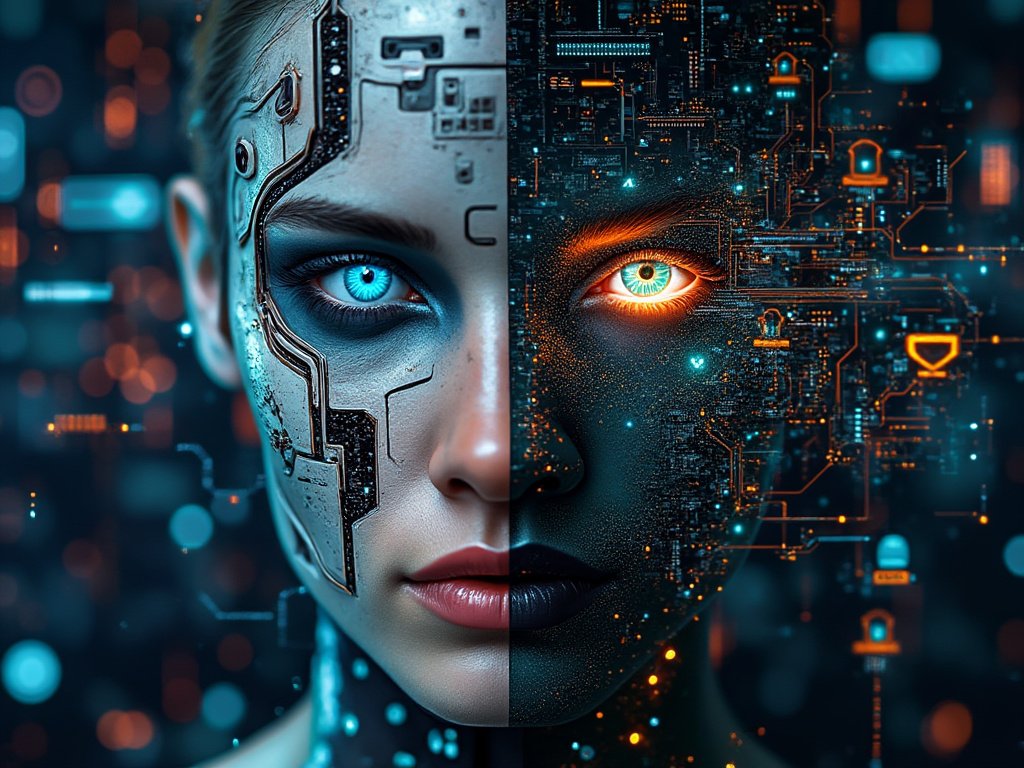Quantum computing is one of the most revolutionary and exciting fields in modern science and technology. Unlike classical computers, which use bits (0s and 1s) to process information, quantum computers use quantum bits, or qubits, which harness the principles of quantum mechanics to perform computations at exponentially faster speeds. This article will explore the core concepts behind quantum computing, how it differs from classical computing, and how this technology is evolving to potentially reshape industries and scientific discovery.
Understanding the Basics of Quantum Computing
At the heart of quantum computing are two fundamental quantum mechanical properties that make it different from classical computing:
1. Superposition
In classical computing, a bit is either a 0 or a 1. Quantum computing, however, allows a qubit to exist in a state known as superposition, where it can be both 0 and 1 simultaneously. This enables quantum computers to process a vast number of possibilities at once, making them exceptionally powerful for certain types of complex computations.
2. Entanglement
Quantum entanglement links qubits, allowing quantum computers to perform complex calculations in parallel, far surpassing the capabilities of classical computers.
3. Quantum Interference
Quantum computers utilize quantum interference to filter out the correct answers from the multiple possibilities generated by superposition and entanglement. This property is essential for solving complex problems, as quantum algorithms are designed to amplify the right answers while minimizing the incorrect ones.

Differences Between Quantum and Classical Computing
Classical computers excel at everyday tasks, but struggle with complex calculations. Quantum computers, leveraging superposition and entanglement, can handle these complex tasks more efficiently.
Key Differences:
- Bits vs. Qubits: Classical computers use bits (0 or 1), while quantum computers use qubits (both 0 and 1 simultaneously).
- Parallel Processing: Quantum computers can perform multiple computations simultaneously due to superposition, whereas classical computers process tasks sequentially.
- Exponential Speed: Problems that might take classical computers thousands of years could potentially be solved by quantum computers in minutes or hours.
Potential Applications of Quantum Computing
The potential applications of quantum computing are vast, with implications for fields ranging from cryptography to drug discovery and artificial intelligence. Some of the most promising areas include:
1. Cryptography
Current cryptographic systems rely on the difficulty of factoring large numbers, which classical computers struggle to do in a reasonable timeframe. Quantum computers, however, can solve these problems much faster. Shor’s algorithm, a quantum algorithm, could theoretically break widely used encryption methods, prompting a race to develop quantum-resistant cryptography.
2. Drug Discovery and Molecular Modeling
Classical computers struggle to simulate molecular behavior, while quantum computers can efficiently model quantum phenomena, accelerating drug discovery and materials science.
3. Optimization Problems
Quantum computers excel at optimization problems, making them valuable for industries like logistics and finance.
4. Artificial Intelligence and Machine Learning
Quantum computing could accelerate machine learning algorithms by allowing for faster data processing and better pattern recognition. This could lead to significant advancements in AI, enabling more sophisticated models and quicker training times.
5. Climate Modeling and Complex Systems
Simulating the Earth’s climate and other complex systems requires vast computational resources. Quantum computers could vastly improve the accuracy and speed of climate models, helping scientists better predict and mitigate the impacts of climate change.

Challenges and Current State of Quantum Computing
While the promise of quantum computing is immense, the field is still in its infancy, and there are several significant challenges to overcome:
1. Quantum Decoherence
Quantum systems are extremely fragile and prone to decoherence, where the quantum state is lost due to environmental interference. Maintaining qubits in a stable state long enough to perform meaningful computations is one of the biggest technical hurdles facing quantum computing.
2. Error Rates and Quantum Error Correction
Quantum computers are highly susceptible to errors caused by small disturbances, such as changes in temperature or electromagnetic fields. Quantum error correction techniques are being developed, but they require many additional qubits to protect the data from errors, making large-scale quantum computing more challenging.
3. Scalability
Building large, reliable quantum computers is a major challenge. Currently, quantum computers have a limited number of qubits, typically in the range of tens to a few hundred. To solve more practical, real-world problems, researchers need to scale up quantum systems to thousands or millions of qubits while maintaining low error rates.
The Evolution of Quantum Computing
Despite these challenges, quantum computing has made tremendous progress over the past decade. Major tech companies, academic institutions, and governments are investing heavily in the development of quantum technologies.
Key Milestones in Quantum Computing:
- IBM and Google’s Quantum Processors: Companies like IBM, Google, and Intel have made strides in developing quantum processors. In 2019, Google claimed “quantum supremacy” with its Sycamore processor, which solved a problem in 200 seconds that would take classical supercomputers thousands of years to solve. However, this claim has been debated in the field.
- Quantum Cloud Services: IBM, Microsoft, and Amazon are offering cloud-based quantum computing services, allowing researchers and developers to experiment with quantum algorithms without needing their own quantum hardware.
- Quantum Software Development: New quantum programming languages and software platforms like Qiskit (IBM) and Cirq (Google) are being developed to allow researchers and developers to build quantum algorithms and explore the capabilities of quantum hardware.
- Quantum Networks: Researchers are also working on building quantum networks, which could enable highly secure quantum communication. Quantum networks would rely on entanglement to transmit data, making them resistant to eavesdropping.
The Future of Quantum Computing
The future of quantum computing holds tremendous potential. As the field evolves, we are likely to see:
- Better Quantum Algorithms: Advances in quantum algorithms will help make the most of limited qubits and error-prone hardware, making quantum computers more practical for real-world applications.
- Hybrid Quantum-Classical Systems: In the near term, many expect to see hybrid systems that combine quantum computers with classical supercomputers to solve complex problems more efficiently.
- Quantum-Proof Cryptography: As quantum computers become more powerful, there is an urgent need to develop cryptographic algorithms that are resistant to quantum attacks, ensuring data security in the quantum era.
- Broader Industry Adoption: As quantum computing technology matures, we can expect to see its adoption across industries, particularly in fields like pharmaceuticals, materials science, logistics, and finance.
As quantum computing continues to evolve, it will unlock new possibilities, offering solutions to problems that were once thought impossible to solve. The future is quantum, and we are just beginning to scratch the surface of its potential.
quantum computing, quantum technology, quantum mechanics, quantum physics, quantum algorithms, quantum machine learning,




